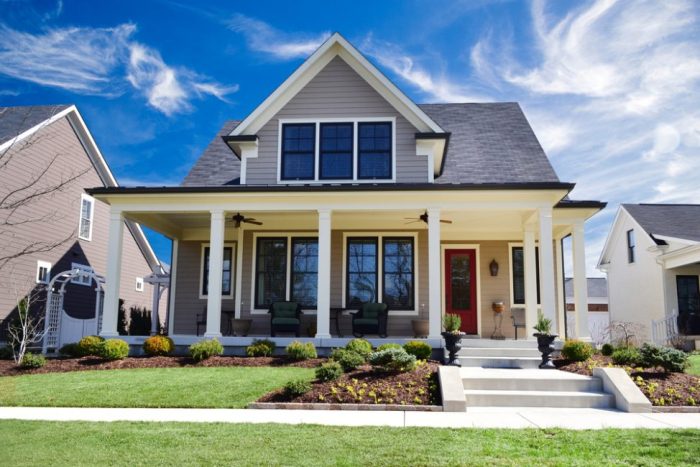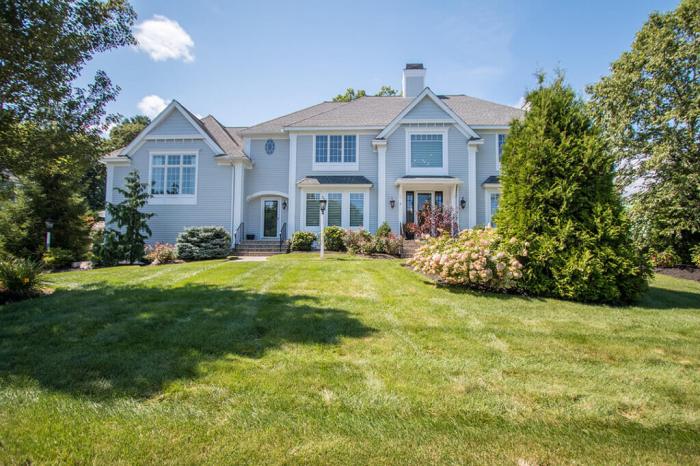Find Your Dream Home Near You: Browse Our Listings Today
Starting off with finding your dream home near you by browsing our listings today, this introductory paragraph aims to grab the attention of readers with engaging information.
The following paragraph will delve into the details and provide a comprehensive overview of the topic.
Researching Local Real Estate Listings
When searching for your dream home, it's crucial to explore local real estate listings to find the perfect match. Here are some key tips to help you navigate through the listings effectively:
Identify Top Real Estate Websites
To start your search, consider popular real estate websites such as Zillow, Realtor.com, and Redfin. These platforms offer a wide range of listings and tools to help you refine your search based on your preferences.
Importance of Browsing Local Listings
Browsing local listings gives you a better understanding of the real estate market in your desired area. It allows you to explore different neighborhoods, property types, and pricing trends to make an informed decision when selecting your dream home.
Tips for Filtering Listings
- Use search filters on real estate websites to narrow down listings based on location, price range, number of bedrooms/bathrooms, and other amenities.
- Save your favorite listings to keep track of properties that meet your criteria.
- Consider working with a real estate agent who can provide personalized recommendations and access to exclusive listings in your preferred area.
Exploring Neighborhoods
When searching for your dream home, exploring neighborhoods near you is crucial to finding the perfect fit for your lifestyle. The neighborhood you choose can greatly impact your daily routines and overall quality of life.
The Significance of Exploring Neighborhoods
Researching neighborhood demographics, safety, schools, and amenities can provide valuable insight into the community you may potentially be a part of. Understanding these factors can help you determine if a neighborhood aligns with your preferences and priorities.
Methods to Research Neighborhoods
- Utilize online platforms and resources to gather information on demographics, crime rates, school ratings, and nearby amenities.
- Visit the neighborhood at different times of the day to get a feel for the atmosphere and observe the community in action.
- Speak with local residents or real estate agents to gain firsthand knowledge and experiences about the neighborhood.
- Explore social media groups or forums dedicated to the area to get insights and opinions from current residents.
Impact of Neighborhood Choice on Lifestyle
Your neighborhood choice can significantly impact your lifestyle, from the convenience of nearby amenities to the safety and quality of local schools. Choosing a neighborhood that aligns with your needs and preferences can enhance your daily routines and overall well-being.
Setting Budget and Financial Planning

Setting a realistic budget for purchasing a home is a crucial step in the home-buying process. It involves evaluating your financial situation, determining how much you can afford to spend, and planning for additional expenses that come with homeownership.
Steps to set a realistic budget for purchasing a home
- Calculate your total monthly income: Include all sources of income to determine how much you can allocate towards a mortgage payment.
- Assess your current expenses: Review your monthly expenses to understand your spending habits and identify areas where you can cut back to save for a down payment.
- Determine your down payment amount: Aim to save at least 20% of the home's purchase price to avoid private mortgage insurance (PMI) and lower your monthly payments.
- Consider closing costs and other fees: Factor in additional costs such as closing costs, property taxes, homeowners insurance, and maintenance expenses.
- Get pre-approved for a mortgage: Consult with lenders to determine how much you can borrow and get pre-approved for a mortgage to strengthen your offer when buying a home.
Financial aspects to consider when buying a home
- Loan options: Research different types of mortgages and loan programs to find the best option for your financial situation.
- Credit score: Maintain a good credit score to qualify for favorable interest rates and loan terms.
- Debt-to-income ratio: Keep your debt-to-income ratio low to ensure you can afford your mortgage payments along with other financial obligations.
- Emergency fund: Save for unexpected expenses or financial emergencies that may arise as a homeowner.
- Homeownership costs: Budget for ongoing homeownership costs like maintenance, repairs, utilities, and property taxes.
Tips on how to get pre-approved for a mortgage
- Check your credit report: Review your credit report and address any errors or issues that may affect your credit score.
- Gather financial documents: Prepare documents such as pay stubs, tax returns, bank statements, and proof of assets to provide to lenders during the pre-approval process.
- Shop around for lenders: Compare mortgage rates and terms from multiple lenders to find the best offer for your financial situation.
- Submit a pre-approval application: Complete a pre-approval application with a lender to get a clear understanding of how much you can borrow and the terms of the loan.
Working with Real Estate Agents

When it comes to finding your dream home, working with a real estate agent can be a game-changer. These professionals have the knowledge, experience, and network to help you navigate the complex real estate market and find the perfect property for you.Real estate agents can provide you with valuable insights into the local market, help you negotiate the best deal, and guide you through the entire home buying process.
They can also save you time and effort by doing the legwork for you, such as scheduling property viewings and coordinating with sellers.
The Benefits of Working with a Real Estate Agent
- Access to a wealth of market knowledge and expertise.
- Assistance in finding properties that match your criteria and budget.
- Negotiation skills to help you secure the best deal.
- Guidance and support throughout the buying process.
Tips for Finding a Reliable and Experienced Agent
- Ask for recommendations from friends, family, or colleagues who have recently bought or sold a home.
- Check online reviews and ratings to get an idea of an agent's reputation.
- Interview multiple agents to find someone who understands your needs and communicates effectively.
- Avoid agents who pressure you or seem more focused on their commission than finding you the right home.
The Role of a Real Estate Agent in Finding Your Dream Home
- Helping you define your search criteria and priorities.
- Providing you with access to exclusive listings and off-market properties.
- Arranging property viewings and guiding you through the decision-making process.
- Negotiating with sellers on your behalf to get the best possible price and terms.
Concluding Remarks

Wrapping up the discussion on finding your dream home near you through browsing listings today, this final paragraph will summarize key points and leave readers with a lasting impression.
General Inquiries
What are the top real estate websites to browse listings?
Some top websites include Zillow, Realtor.com, and Trulia.
How can I filter listings based on preferences like location and price range?
Most websites have filters that allow you to specify location, price range, number of bedrooms, and amenities.
Why is it important to explore neighborhoods near you when searching for a dream home?
Exploring neighborhoods helps you assess safety, schools, amenities, and overall lifestyle fit.
What financial aspects should I consider when buying a home?
Consider factors like down payment, closing costs, property taxes, and homeowners insurance.
How do I find a reliable real estate agent near me?
Ask for referrals, read reviews, and interview agents to find someone experienced and trustworthy.




